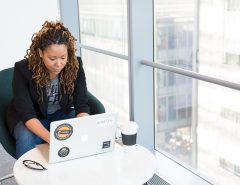Conversation with Francis Ford Coppola (Masterclass) at the Deauville Film Festival in 2011. [thanks to Larry Wright]
THREE RULES
- Write and direct original screenplays
- Make them with the most modern technology available
- Self-finance them
FILMMAKING CAN NEVER BE MASTERED
“I just finished a film a few days ago, and I came home and said I learned so much today. So if I can come home from working on a little film after doing it for 45 years and say that — that shows something about the cinema.”
RISKS ARE ESSENTIAL
“Even in the early days of the movies, they didn’t know how to make movies. They had an image and it moved and the audience loved it. You saw a train coming into the station, and just to see motion was beautiful. The cinema language happened by experimentation — by people not knowing what to do. But unfortunately, after 15-20 years, it became a commercial industry. People made money in the cinema, and then they began to say to the pioneers, Don’t experiment. We want to make money. We don’t want to take chances. An essential element of any art is risk. If you don’t take a risk then how are you going to make something really beautiful, that hasn’t been seen before? I always like to say that cinema without risk is like having no sex and expecting to have a baby. You have to take a risk. I was never afraid of risks. I always had a good philosophy about risks. The only risk is to waste your life, so that when you die, you say, Oh, I wish I had done this.”
IF YOU DON’T BEGIN BY IMITATING, YOU WON’T BEGIN AT ALL
“Don’t worry about whether it’s appropriate to borrow or to take or do something like someone you admire — because that’s only the first step and you have to take the first step.”
DON’T RELY ON SELLING YOUR ART DIRECTLY
“Try to disconnect the idea of cinema with the idea of making a living and money. Because there are ways around it. You work another job and get up at five in the morning and write your script. Maybe the students are right. They should be able to download music and movies. I’m going to be shot for saying this. But who said art has to cost money? And therefore, who says artists have to make money?”
LISTEN BUT FILTER INTENTLY
“A screenplay has to be like a haiku [Japanese poetic form]. It has to be very concise and very clear, minimal. [But when you come to shoot it] you’re going to listen to the actors because they have great ideas. You’re going to listen to the cinematographer because he will have a great idea. You must never be the kind of director, I think maybe I was when I was 18, “No, no, no, I know best.” That’s not good. You can make the decision that you feel is best, but listen to everyone, because cinema is collaboration. I always like to say that collaboration is the sex of art because you take from everyone you’re working with.”
WHEN MAKING A MOVIE FOCUS ON A THEME
“When you make a movie, always try to discover what the theme of the movie is in one or two words. Every time I made a film, I always knew what I thought the theme was, the core, in one word. In The Godfather, it was succession. In Apocalypse, it was morality. The reason it’s important to have this is because most of the time what a director really does is make decisions. All day long: Do you want it to be long hair or short hair? Do you want a dress or pants? Do you want a beard or no beard? There are many times when you don’t know the answer. Knowing what the theme is always helps you.
“I remember in The Conversation, they brought all these coats to me, and they said: Do you want him to look like a detective? Do you want him to look like a blah blah blah. I didn’t know! And [because the theme was privacy] I chose the plastic coat you could see through. So knowing the theme helps you make a decision when you’re not sure which way to go.”
CAST WITH IMPROVISATION SESSIONS
“With improvisations, they really stick if there’s something sensual connected with them, like food or eating or making something with their hands.”
HAVE CONVICTION IN YOUR VISION AND ‘BAKE THE SCENE IN THE OVEN’
“When I was young on a movie set, I would try to stage the scene and the actors would read it, and I said — Well, you stand here and you sit there… [But] They would say — Well, I don’t think I should sit there, I should stand there. And I don’t think this line is right… And they would begin to challenge the text. What I learned, which is a simple idea, is that if you hold out with your vision a little bit, it’s like a cake being put in the oven. The scene doesn’t work immediately, you have to bake it a little bit. It’s unfair, when you begin to create a shot, say, or a scene, that it’s going to immediately be like those beautiful scenes in the movies. It needs a little bit of time to mature.”
DON’T LIE TO YOURSELF
“You never have to lie. If you lie, you will only trip yourself up. You will always get caught in a lie. It is very important for an artist not to lie, and most important is not to lie to yourself. There is something we know that’s connected with beauty and truth. There is something ancient. We know that art is about beauty, and therefore it has to be about truth.”
HAVE CONFIDENCE
“The artist always battles [their own] feeling of inadequacy. Self confidence is the biggest barrier to becoming a filmmaker. We are very insecure. People are insecure, not just young people. Everyone is insecure. They say that Barbara Streisand, when she goes on, she has a panic attack. She feels she can’t sing. Of course, she can sing. I believe that when you write something, when I write something, I turn it over and I don’t look at it. Because I believe the writer, the young writer, has a hormone that makes them hate what they’ve written. And yet, the next morning, when you look at it, you say, “Oh that’s not bad.” But the first second you hate it.”
Filmmaking tips from a legend — Interview with Francis Ford Coppola. The full, frankly amazing interview, is at The 99% here. The Rumpus interview with Coppola, “full of hope and longing, full of the kind of wisdom (and writing tips!) that only a legend could impart,” here. The screenplay of ‘The Conversation’ by Francis Ford Coppola here. I also recommend you to listen audio commentary with Coppola. (NOTE: For educational purposes only.)
//

(Source: https://player.vimeo.com/)



